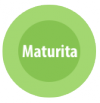

Everyday life, daily routines
Každodenní život, typické činnosti každodenního života
Maturita z angličtiny má i konverzační témata, na která je třeba se dobře připravit. V této lekci se zaměříme na Everyday life, daily routines a podíváme se na vzorové ukázky krátké promluvy na toto téma, užitečných frází a doplňujících otázek. Otázky vám pomůžou při tvoření bodové osnovy právě pro téma: Typické činnosti každodenního života
Jak na to?
- pokuste se podat detailní, věcný a logický popis vašeho typického dne, týdne nebo víkendu
- logická popište jeho průběh, typické činnosti a důvod, proč je děláte
- pokud se vám podaří z toho vyvodit i nějaký závěr nebo pointu, bude to ideální
Co radíme my
- z následujících otázek a vzorových odpovědí si sestavte bodovou osnovu
- podle osnovy si trénujte vyprávění a snažte se přemýšlet o tom, co říkáte
- v žádném případě se nepokoušejte učit nějaké pasáže textu nazpaměť nebo vytvářet komplikovaná souvětí
- celé vyprávění musí být na takové úrovni a takové obtížnosti, abyste byli schopni jej kdykoliv zopakovat
My daily routine
How does you typical day look like?
What do you do every morning/ afternoon / evening?
Tell what you do at various times throughout the day.
My typical day starts when I usually get up about half past six and go to bathroom. There I wash my teeth and wash face. After that I go to the kitchen to eat breakfast. I always go to the bus stop at seven o?clock. When I go to school I stay there until half past two(sometimes I stay at school longer). After school I go home and have dinner .After dinner I often learn and do my homework. After homework I do different housework for example: very often I go to the shop, do hovering or cleaning. Then I play computer games, surf the Internet or I play in games on my mobile, read a book or watch television. Usually these actions don?t take me lots of time. In the evening I and my parents always sit to the meal. After meal I have a bath, wash my teeth and go to the bed. This is my typical, usual day.
What are some of the daily activities that you do at home?
I wake up at 7am every morning.
I press the snooze button five times every morning before I turn off the alarm and get up.
I have a cup of coffee and make breakfast. I usuallyread the newspaper while I have breakfast. My children like to have a shower after they have breakfast but I like to have a shower before I get dressed.
My wife brushes her long hair, and I have short hair so I comb my hair. How do you do your hair in the morning?
It is important to brush your teeth, and some women like to put make-up on.
After I have finished work, I go home to cook dinner. In my house I usually make dinner. The family eat dinner together at 7:30pm.
After dinner I make sure that my children do their homework, and then I chill out on the sofa andwatch television.
On television I usually watch the News. My wife usually comes to tell me to take the rubbish out, orwash the dishes.
Our children feed the dog and the cat before they go to bed and I tell them to go to the bathroomtoo.
If I am sick I have to take my medication, but then I get into my pyjamas and set the alarm so I wake up in the morning.
The last things I do is lock the door, turn off the lights, and go to bed.

What are some other daily activities that you do?
I exercise at least three times a week.
I usually go to the gym before work, but sometimes I go after work.
I meditate every morning so that I feel less stressed during the day.
Pro popis typických a periodicky se opakujících činností se používá přítomný čas prostý = present simple. Ten je pro zdůraznění a upřesnění četnosti opakování často doplněný příslovečným určením času.
Typical weekend
Do you spend weekends with your family?
How do you spend weekends with your friends?
Weekend is perfect time to relax.
On Saturday I get up later, than at ordinary weekend. I get up at 10 o'clock, sometimes later. I eat breakfast at 12 o'clock a.m.I clean my room. Next I go out with my friends. In the evening I stay at home and I watch Tv or read magazines. I eat dinner at 4 o 'clock p.m.
On Sunday I get up at 9 o'clock. I eat breakfast, go to church and meet my cousin - Ada. Next I have dinner with my family. Then I listen to music, do my homework and chat using gg. Next I take a shower and go to bed at 10 o'clock p.m.
List of useful expressions:
- watch a movie
- go to a ball game
- see a concert
- rent a video
- surf the Internet
- work out
- visit friends
- stay home
- relax
- sleep in
- play cards
- play computer games
- go out to eat
- go dancing
- go downtown
- have a party
- go to the beach
- go on a picnic
Duties
What do you have to do at home?
What do usually mothers/fathers/girls/boys do at home?
This is my last year at school, and I work hard to pass my final exams successfully. As I am very busy, I can’t help my parents much in keeping the house. But still I have some household duties.
Every day I do my room, wash up, dust the furniture and usually go to the baker’s after I have dinner. I buy some brown and white bread, biscuits and cakes the The shop is not far from our house and it doesn’t take me long to do everyday shopping.
Once a v/eek I help my mother to do all other work about the house. We wash our linen, iron and mend it, clean the flat. We beat the dust out of the carpets, vacuum the floors and polish them. It’s not difficult to keep the flat tidy if you do your rooms regularly. This is my usual round of duties.
List of useful expressions:
- clean off the table (also, "clean the table off")
- clean up the room
- dust the furniture
- fix up the apartment
- hang up the suit
- make the bed
- mop the floor
- pick up the clothes
- polish the furniture
- put away the books
- set the table
- sweep up the mess
- take out the trash
- throw out the garbage
- tidy up the closet
- turn off the light
- vacuum the floor
- wash the clothes
- wash down the walls
- watch the kids
20 otázek na téma Everyday life, daily routines a habits
Zkuste si v rámci přípravy odpovědět na následující otázky a použijte vše, co jste se dověděli v předchozích lekcích:
- Do you have any bad habits?
- Do you think all habits are bad? If not, what do you think are some good habits to have?
- Are there habits that apply to whole societies?
- Where do you think we learn our habits from?
- Do children learn bad habits at school or at home?
- Are you aware of any habits that are considered bad manners in one country but not in another?
- Which bad habit do you think would be the most difficult to get rid of?
- Which good habit do you think would be the most difficult to develop?
- Which habit is the most important for parents to set as an example of for their children?
- How do you think we develop bad habits?
- How do we develop good habits?
- What are your sleeping habits?
- What are your eating habits?
- What are your exercise habits?
- What do you think are the worst habits for people to have?
- Do your family members have any bad habits?
- Is it easy or difficult to get rid of a bad habit?
- Have you been successful in getting rid of a bad habit?
- What habits bother you the most in other people?
- What good habits do you most admire?
Nezapomeňte ani na slovní zásobu pro téma Everyday life, daily routines a habits
Procvičte si gramatické prostředky pro popis opakovaných činností a vyjádření frekvence v sekci Gramatiky

Kontrolní otázky...
-
Jaký čas se používá pro popis opakujících se činností?
-
:-( to jsme trošku mimo, present progressive se používá nejčastěji pro popis právě porbíhající činnosti nebo plánů do budoucna
-
YES, we usually use the present simple
-
na situaci určitě záleží, ale pokud je situace taková, že mluvíme o opakované činnosti, tak present simple je ideální volba
-
-
The opposite to a permanent job is a ...
-
wrong
-
yes, that is the right answer
-
this is not how we call it
-
-
When someone stays at work later than the office hours, he is working ...
-
not the right answer
-
yes, correct
-
well, it depends on where you work :-)
-

Seznam slovíček k lekci




